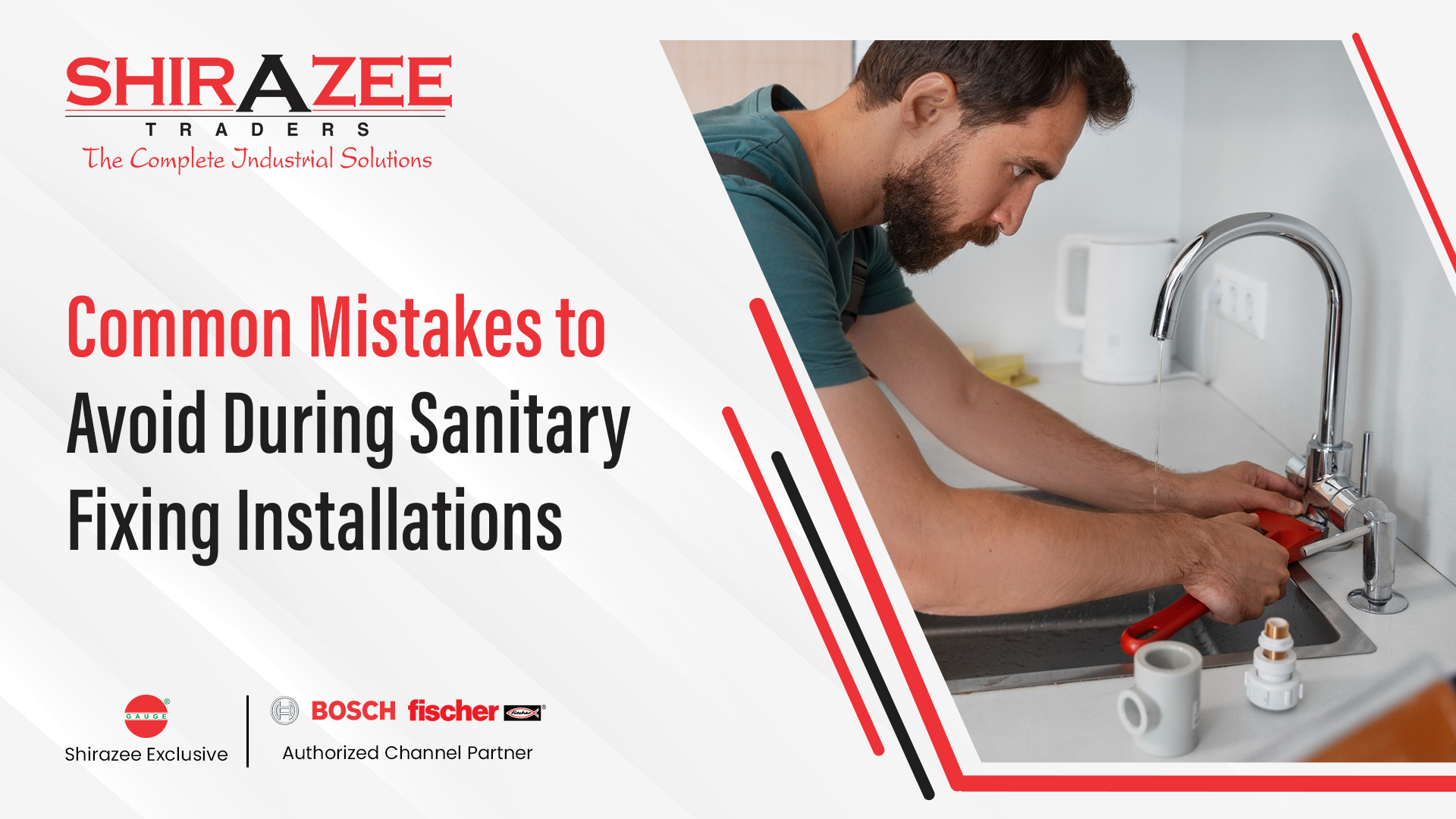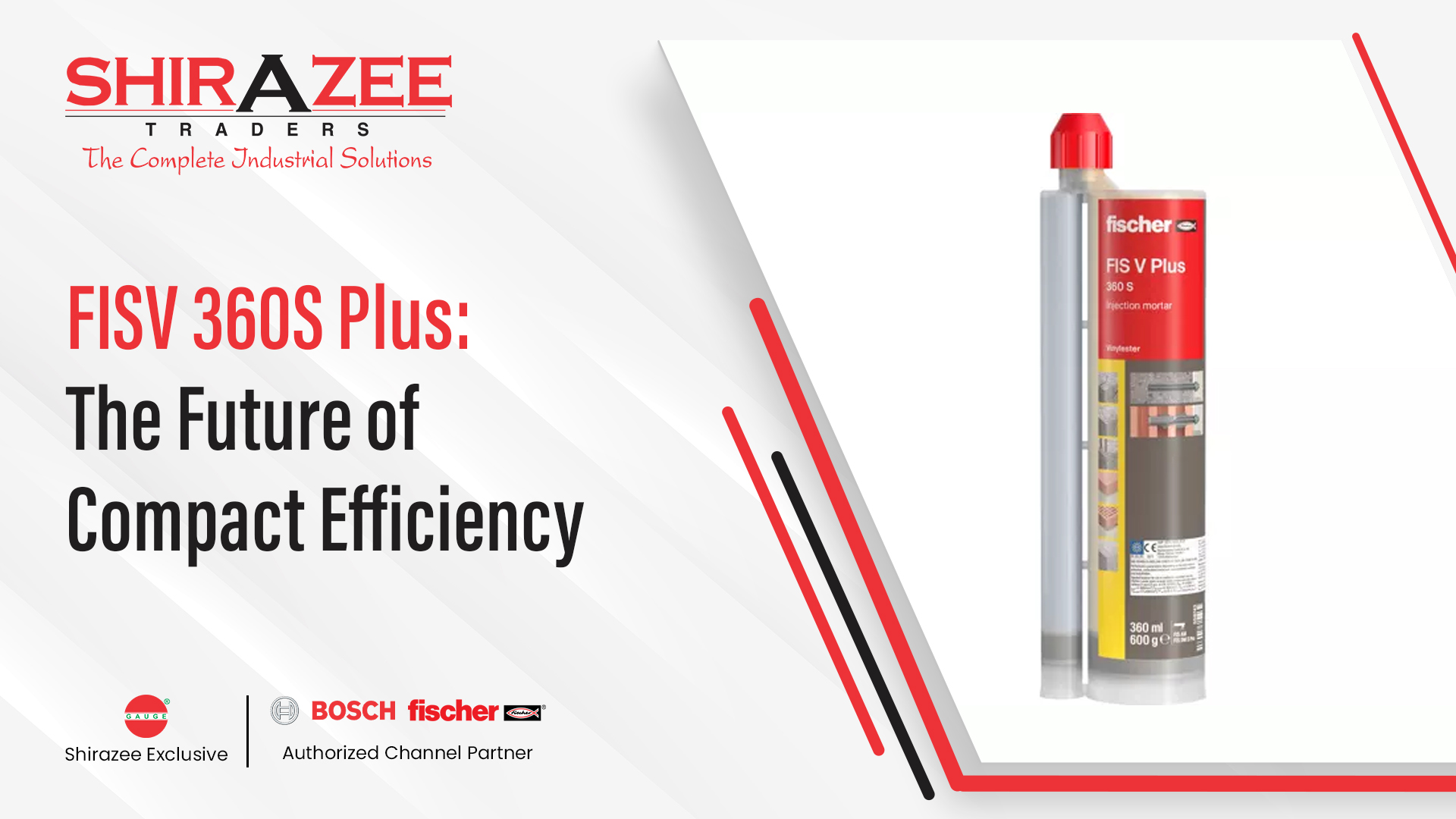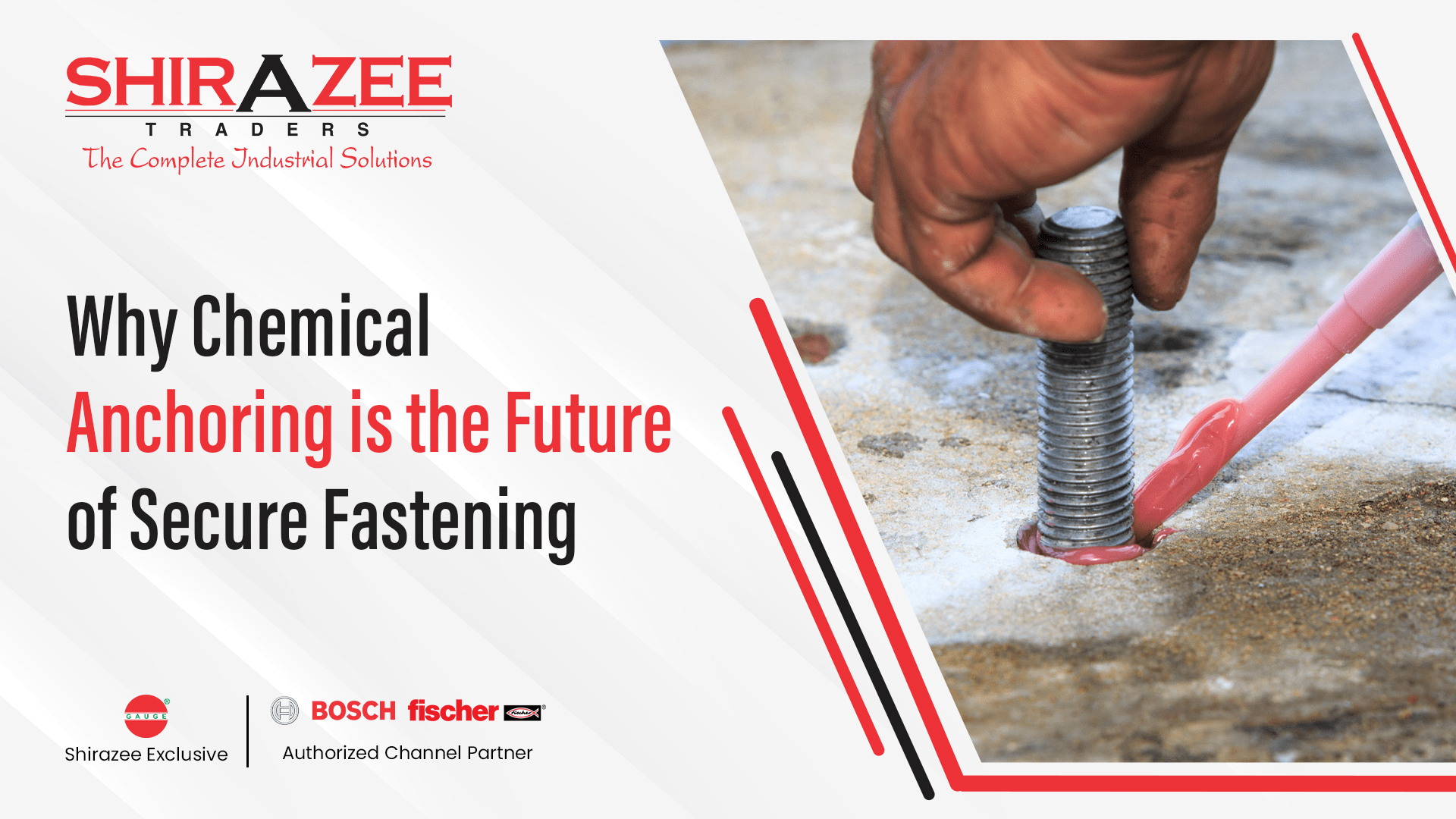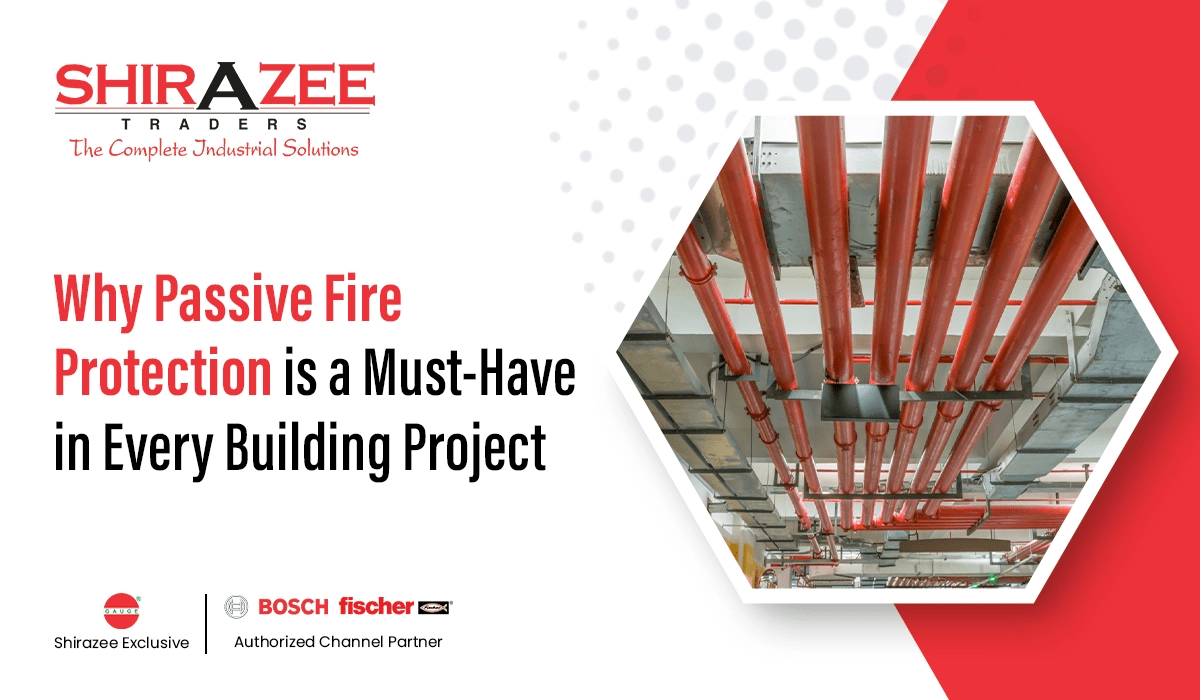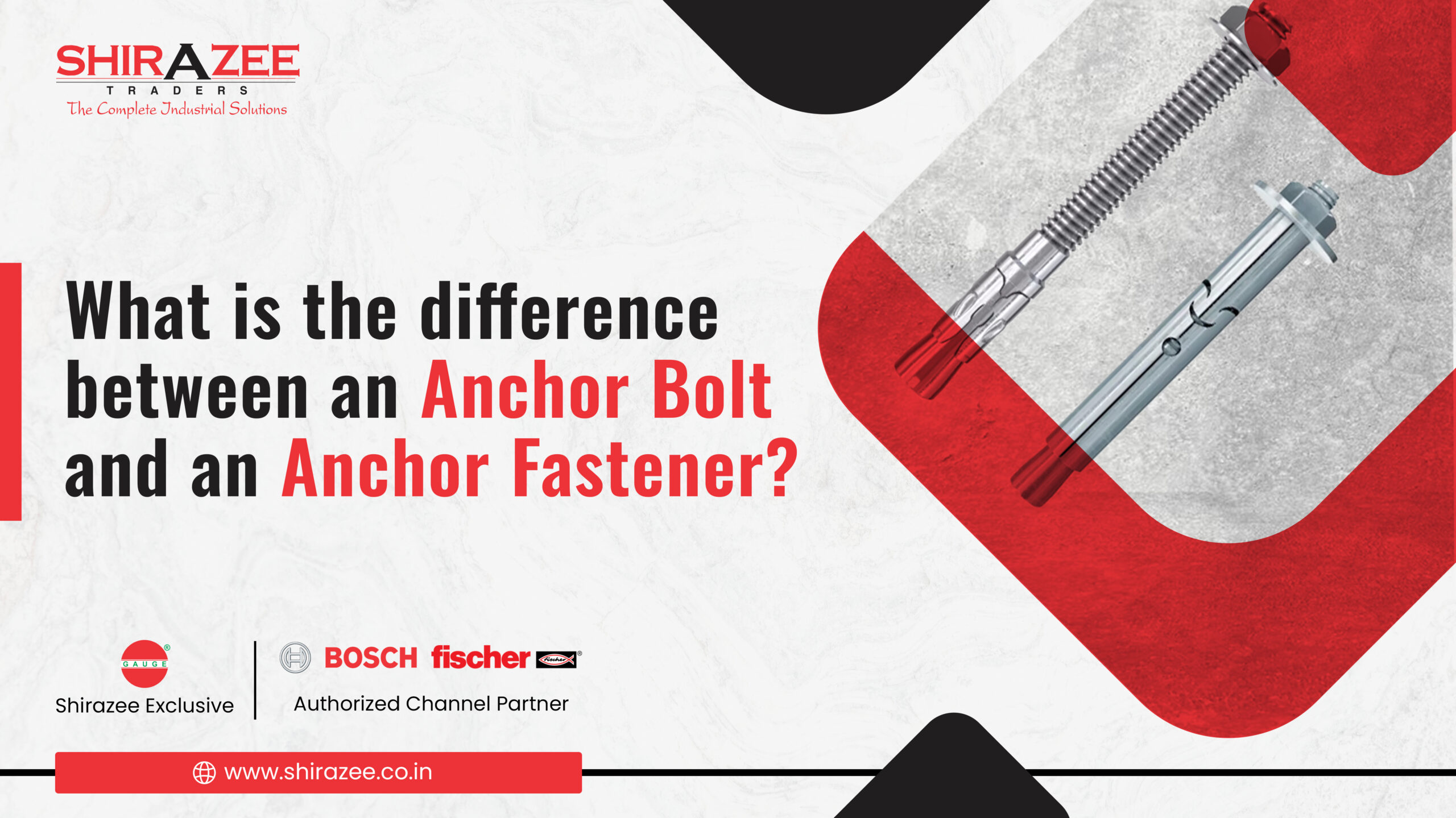
Suppose you’ve ever worked on a project involving securely attaching something to a concrete or masonry surface. You’ve encountered terms like anchor bolt and anchor fastener in that case.
At first glance, they might seem interchangeable, but trust me, they’re not the same thing. Each has a distinct function, and understanding the distinction will help you avoid many problems in the future.
In this blog, we’ll explain what they are, how they’re used, the different types, and the key ways they differ. Whether you’re a do-it-yourself enthusiast or an experienced pro, you’ll walk away knowing exactly which one you need for your next project.
Shall we get right into it?
What Are Anchor Bolts and Anchor Fasteners?
Let’s start with the basics.
- Anchor bolt: An anchor bolt is a strong, heavy-duty fastener used to secure large objects. To provide an extremely strong connection, an anchor bolt is usually embedded into the concrete. Consider bridges, steel buildings, or large machinery. These bolts are designed for high-stress, long-term use and mean business.
- Anchor Fastener: On the other hand, an anchor fastener is more of a general term. It includes all kinds of fastening systems, like expansion anchors, chemical anchors, and screw anchors. These are versatile and can work with concrete, brick, or drywall. They’re great for smaller or medium-weight applications.
How Are They Used?
This is where their differences start to show.
- Anchor Bolt: These bolts are heavy hitters in the construction world. They secure steel beams to concrete foundations or hold up large towers. If it’s significant, chances are an anchor bolt is holding it down.
- Anchor Fastener: These are more flexible. Got a shelf to mount on a brick wall? Or you’re hanging something on drywall? An anchor fastener is your go-to. They’re perfect for lighter projects that don’t need the same level of strength as anchor bolts.
Types of Anchor Bolts and Anchor Fasteners
Not all fasteners are created equal in construction or DIY projects. Anchor bolts and fasteners come in various types, each designed to solve specific problems. Some are perfect for holding up skyscrapers, while others are great for hanging shelves.
Let’s break them down so you know exactly which one to grab for your next project.
Anchor Bolts: Heavy-Duty Heroes
1. Cast-in-Place Anchor Bolts
These are embedded into concrete when it’s being poured. They’re perfect for heavy-duty, permanent installations like securing columns or industrial machinery. These anchor bolts are your go-to option if you’re working on something big and solid.
2. Post-Installed Anchor Bolts
Do you need to add an anchor after the concrete has hardened? These anchor bolts are your saviours. Often used with adhesives like epoxy, they provide excellent strength for retrofitting applications. Think of them as a way to add security to something already built.
L-Bolts
Shaped like the letter “L,” these anchor bolts are great for holding poles or beams. Their unique design helps them grip the concrete better, making them perfect for projects that need strong, secure anchoring.
J-Bolts
Similar to L-bolts but with a curved, hook-like end, these anchor bolts are often used in foundation work. The hooked end ensures they stay firmly embedded in the concrete, even under heavy stress.
U-Bolts
Shaped like—you guessed it—a “U,” these anchor bolts are ideal for securing pipes or tubes. They clamp down tightly, strengthening and stabilizing industrial or plumbing setups.
Anchor Fasteners: Versatile All-Rounders
1. Expansion Anchors
These are the workhorses of anchor fasteners. When installed, they expand to grip the surrounding material tightly. Perfect for concrete or masonry, they’re great for mounting signs or light fixtures.
2. Chemical Anchors
Need something extra substantial? These anchor fasteners use a resin or epoxy to bond with the material, creating a rock-solid connection. They’re commonly used for heavy-duty applications where traditional fasteners might need to catch up.
3. Screw Anchors
These are really easy to use, straightforward, and efficient. All you need to do is drill a hole and screw them in. They are a dependable option when you need a fast fix and are ideal for lighter applications like shelving or tiny fixtures.
4. Sleeve Anchors
These anchor fasteners are adaptable and capable of handling a wide range of materials, including brick and concrete. They create a secure fit as you tighten the bolt because they expand. They can be applied to tasks like mounting machines or fastening railings.
5. Toggle Bolts
Do you have hollow walls? These anchor fasteners are a lifesaver. The wings on the bolt expand behind the wall, giving you a secure grip. It is ideal for mounting things like curtain rods or lightweight shelving.
Key Differences Between Anchor Bolts and Anchor Fasteners
Understanding the differences between an anchor bolt and an anchor fastener is like knowing when to use a sledgehammer versus a regular hammer. Both get the job done, but the choice depends on your work.
Let’s break it down into simple, relatable comparisons.
1. Applications
- Anchor Bolt: These are the big players in heavy-duty applications. You’ll see them in structural projects like bridges, skyscrapers, and industrial machinery installations. A solid anchor bolt is the answer when strength and stability are non-negotiable.
- Anchor Fastener: Need to hang a shelf or mount a light fixture? That’s where an anchor fastener shines. It’s versatile, perfect for everyday tasks, lighter tasks around the house, or smaller-scale projects.
2. Installation
- Anchor Bolt: It is possible to prepare and install an anchor bolt. When pouring the foundation, the bolt is often embedded or drilled into the concrete. Some even call for adhesives, such as epoxy. It’s more practical, yet it’s not complicated.
- Anchor Fasteners: On the other hand, an anchor fastener is the most user-friendly option for novices. After drilling a hole and putting the fastener in, you’re finished. It’s quick, easy, and doesn’t require a degree in construction to get it right.
3. Load-Bearing Capacity
- Anchor Bolt: An anchor bolt is unbeatable when it comes to holding up under pressure. These bolts are designed to handle heavy loads, high stress, and even vibrations without breaking a sweat.
- Anchor Fastener: More powerful but better suited for medium or small loads is the anchor fastening. Although it may not be able to sustain extreme weight or pressure, it is dependable for its intended application.
4. Durability
- Anchor Bolt: Built to last, an anchor bolt is a champion in durability. It can withstand harsh weather, vibrations, and just about anything you throw at it, making it ideal for long-term use.
- Anchor Fastener: Durable, yes, but only to a point. An anchor fastener works excellently for most projects. Still, it’s not built for extreme conditions or heavy wear and tear like its bolt counterpart.
5. Cost and Complexity
- Anchor Bolt: This bolt has a somewhat higher price tag, but it is quite strong. Anchor bolt installation is a more costly and complicated option since it frequently calls for specialized equipment and trained labor.
- Anchor Fastener: An anchor fastener is inexpensive, simple, and ideal for minimal budgets and speedy adjustments. It’s simple to use and doesn’t require professional help.
Summing Up!
Although the names “anchor bolt” and “anchor fastener” sound similar, they serve quite different purposes. Anchor fasteners are your versatile all-rounder’s, ideal for modest jobs and speedy fixes, while anchor bolts are the heavy-duty champions designed for strength and durability. Knowing the difference isn’t just helpful—it can save you from unnecessary stress (and possibly a DIY disaster).
Shirazee Traders has you covered if you still need clarification on the one you need or are searching for trustworthy goods. We offer a variety of excellent anchor solutions for any project, making us a name to trust. We have everything you need to make your project rock solid, from strong bolts to multipurpose fasteners.



